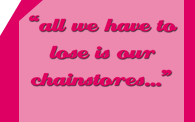
|
|
Precarity stretches beyond work.
It includes housing, debt, general instability, the inability to
make plans.
We can talk about the subjugation of life under capital, not just
the subjugation of labour under capital.
Precarity is an instrument of control; it is enforced by those with
power upon the powerless. We can't choose how we want to live.
It engenders competition in social life.
It forces us into a Darwinian "struggle for existence"
on a social level.
Precarity is the basic condition of individuals in capitalist society.
It divides us, and limits opportunities to get together.
People are disempowered and social relations break down.
No. Flexibility maybe, but not precarity.
The idea of flexibility does open up some possibilities. However
these are limited to "certain sections" of the working
class (young, childless etc.) rather than a choice available to
all.
Our creativity in resisting full time wage labour has been appropriated
by the restructuring of the labour market.
In the 1970s many revolutionary workers refused the "job for
life" and demanded free time from work for social activity
and the liberation of the human mind.
The restructuring of work and the smashing of many unions in the
1980's leading to the kind of precarity we experience now was capital's
response.
Where does our creativity in resisting full-time waged labour end
and appropriation begin?
Should preservation of the welfare state and a job for life be our
ultimate goal?
The opposite of precarity, as it is presented to us, is regular
wages and stable housing.
But this supposed 'opposite' to precarity is often just another
version of it.
The privileges of enjoying this material security is at the cost
of everything else - your time, life, energy, integrity, creativity
and autonomy.
Capitalism creates insecurity to force us into this state of dependency
that makes it difficult to think outside the system.
Production of precarity is inextricable from re-production of the
social relationship that is capitalism.
Generalised insecurity is a tool of social control.
A generated state of emergency (eg the Terrorism Act) mirrors the
insecurity in the new precarious work regime.
We need to develop a network of struggles, collectivising those
individual acts of resistance and establishing social support and
solidarity.
We want to avoid the dead-end focus and sterile tactics of the old
left around job security, and we need to transcend old ways of organising
such as unions that can't work with more transient kinds of employment.
In a situation where work is transient, and many of us move from
job to job, and work in places with a high turnover of employees,
or for agencies where we never meet our boss; it is no longer enough
to organise in the workplace, we must create networks of resistance
on a social level & find new forms of collective struggle.
|
|


